Schizophrenia is a complex and chronic mental health condition that affects how a person thinks, feels, and behaves. Characterized by symptoms such as hallucinations, delusions, and cognitive impairments, it requires a multifaceted approach to manage effectively. While medical treatment is essential, adopting a supportive and healthy lifestyle can significantly improve quality of life and help individuals thrive.
At Foundations Group Behavioral Health, we understand the importance of a holistic approach to managing schizophrenia. Through tailored programs such as Psychiatric Day Treatment, Half-Day Treatment Programs, and Outpatient Mental Health Programs, we provide the tools and support needed for individuals and families navigating this challenging condition.
Understanding Schizophrenia
Schizophrenia affects approximately 1% of the population worldwide, often beginning in late adolescence or early adulthood. It impacts an individual’s ability to distinguish reality, communicate effectively, and maintain relationships.
Symptoms of Schizophrenia
- Positive Symptoms:
- Hallucinations (hearing or seeing things that aren’t there).
- Delusions (false beliefs not grounded in reality).
- Disorganized thinking or speech.
- Negative Symptoms:
- Lack of motivation or interest in activities.
- Flattened emotional expression.
- Withdrawal from social interactions.
- Cognitive Symptoms:
- Difficulty concentrating.
- Impaired memory and decision-making.
- Challenges with organizing thoughts and tasks.
Why Lifestyle Matters in Schizophrenia Management
While medication and therapy form the backbone of treatment, lifestyle adjustments play a critical role in symptom management and overall well-being. A well-rounded lifestyle can help individuals build resilience, reduce symptom severity, and prevent relapses.
The Benefits of a Balanced Lifestyle
- Improved physical and mental health.
- Greater emotional stability.
- Enhanced ability to manage stress and triggers.
- Better adherence to treatment plans.
Key Lifestyle Strategies for Managing Schizophrenia
1. Establishing a Structured Routine
Predictability can reduce stress and create a sense of stability for individuals with schizophrenia. A structured routine minimizes decision fatigue and provides a foundation for daily activities.
- Tips for Success:
- Maintain consistent wake-up and bedtime schedules.
- Plan meals, exercise, and relaxation periods at regular intervals.
- Use tools like calendars or smartphone reminders to stay organized.
2. Prioritizing Physical Health
Physical health and mental health are deeply interconnected. A healthy body supports a healthy mind, making it crucial to focus on fitness, nutrition, and sleep.
- Exercise:
- Engaging in 30 minutes of moderate exercise 3–5 times a week improves mood and reduces anxiety. Activities like walking, yoga, or swimming are excellent options.
- Exercise increases levels of endorphins and serotonin, which are often imbalanced in individuals with schizophrenia.
- Nutrition:
- Consume a balanced diet rich in fruits, vegetables, lean proteins, and whole grains.
- Avoid processed foods and excessive sugar, which can exacerbate inflammation and mental health symptoms.
- Stay hydrated, as dehydration can impact cognition and energy levels.
- Sleep Hygiene:
- Aim for 7–9 hours of sleep per night.
- Create a calming bedtime routine, such as reading or practicing mindfulness, to prepare for restful sleep.
3. Managing Stress Effectively
Stress is a known trigger for worsening schizophrenia symptoms. Learning to manage stress through coping mechanisms can significantly reduce its impact.
- Mindfulness and Meditation:
- Practices like deep breathing, progressive muscle relaxation, and guided meditation promote relaxation and reduce stress.
- Mindfulness teaches individuals to focus on the present moment, decreasing worry and anxiety.
- Therapy Support:
- Programs like Psychiatric Day Treatment and Half-Day Treatment Programs offer structured environments to learn and practice stress-management techniques.
4. Strengthening Social Connections
Social isolation is a common challenge for individuals with schizophrenia, but maintaining meaningful relationships is essential for emotional well-being.
- Building a Support Network:
- Connect with family and friends who are understanding and supportive.
- Join community groups or participate in group therapy sessions to foster a sense of belonging.
- Improving Communication Skills:
- Therapy sessions can help individuals develop effective communication techniques.
- Role-playing scenarios in a safe environment can build confidence for real-world interactions.
5. Medication Adherence
Antipsychotic medications are the cornerstone of schizophrenia treatment, helping to manage symptoms like hallucinations and delusions. However, consistent adherence is critical for their effectiveness.
- Strategies for Success:
- Set daily reminders or use pill organizers to avoid missed doses.
- Discuss side effects openly with a healthcare provider to adjust medications as needed.
- Combine medication management with professional support through an Outpatient Mental Health Program.
6. Avoiding Substance Use
Substance use, including alcohol and recreational drugs, can interfere with medication effectiveness and exacerbate symptoms. Integrated care through a Co-Occurring Disorder Treatment Program is essential for individuals managing both schizophrenia and substance use disorders.
Therapeutic Approaches for Schizophrenia
1. Cognitive Behavioral Therapy (CBT)
CBT helps individuals identify and challenge distorted thoughts, reducing the impact of delusions or paranoia.
- How It Helps:
- Improves problem-solving skills.
- Teaches coping mechanisms for distressing thoughts.
2. Family Therapy
Involving family members in the recovery process strengthens relationships and improves outcomes.
- Benefits:
- Enhances communication and understanding.
- Provides tools to address family dynamics that may affect recovery.
3. Social Skills Training
This therapy focuses on building interpersonal skills, such as initiating conversations, maintaining eye contact, and interpreting social cues.
4. Vocational Rehabilitation
For individuals interested in returning to work or pursuing education, vocational programs can provide the support and resources needed to achieve these goals.

The Role of Foundations Group Behavioral Health
At Foundations Group Behavioral Health, we offer a comprehensive approach to managing schizophrenia. Our programs provide the structure, tools, and support necessary for long-term stability and well-being.
1. Psychiatric Day Treatment
- What It Offers: Intensive, structured care for individuals with severe symptoms.
- How It Helps: Focuses on emotional regulation, medication management, and coping strategies.
2. Half-Day Treatment Programs
- What It Offers: Flexible care designed for individuals balancing recovery with other responsibilities.
- How It Helps: Provides therapy, psychoeducation, and skill-building sessions in a supportive setting.
3. Outpatient Mental Health Programs
- What It Offers: Ongoing support for individuals with mild to moderate symptoms.
- How It Helps: Encourages independence while providing access to therapy and resources.
4. Co-Occurring Disorder Treatment Programs
- What It Offers: Integrated care for individuals managing both schizophrenia and substance use challenges.
- How It Helps: Addresses the unique relationship between mental health and addiction.
Tips for Caregivers
Caregivers play a vital role in supporting individuals with schizophrenia.
- Educate Yourself: Learn about schizophrenia to better understand your loved one’s experiences.
- Practice Patience: Recovery is a gradual process that requires understanding and empathy.
- Encourage Independence: Support your loved one in building routines and managing responsibilities.
- Seek Support: Caregiver burnout is real—consider joining a support group or seeking therapy for yourself.
Conclusion
Living with schizophrenia presents unique challenges, but with the right combination of medical care, therapy, and lifestyle changes, individuals can lead fulfilling lives. At Foundations Group Behavioral Health, we are committed to helping individuals and families navigate this journey with compassion and expertise.
Contact us today at 888.685.9730 to learn more about our programs, including Psychiatric Day Treatment, Half-Day Treatment Programs, and Outpatient Mental Health Programs. Together, we can help you build a life of stability, connection, and hope.
FAQ on Schizophrenia
How can lifestyle changes help manage schizophrenia?
Lifestyle changes such as maintaining a structured routine, prioritizing physical health, managing stress, and building social connections can reduce symptoms and improve overall quality of life.
Why is routine important for individuals with schizophrenia?
A consistent routine provides stability, reduces stress, and helps manage symptoms by minimizing unpredictability in daily life.
What role does physical health play in managing schizophrenia?
Physical health supports mental health. Regular exercise, a balanced diet, and quality sleep can help improve mood, energy levels, and overall well-being.
How does stress impact schizophrenia symptoms?
Stress can worsen symptoms like hallucinations or paranoia. Stress-management techniques like mindfulness, meditation, and therapy can help individuals maintain emotional balance.
What types of therapy are effective for schizophrenia?
Effective therapies include Cognitive Behavioral Therapy (CBT), Family Therapy, Social Skills Training, and Vocational Rehabilitation. These approaches address emotional, social, and practical challenges.
How can Foundations Group Behavioral Health help manage schizophrenia?
We offer programs like Psychiatric Day Treatment, Half-Day Treatment Programs, and Outpatient Mental Health Programs, providing therapy, medication management, and support tailored to individual needs.








